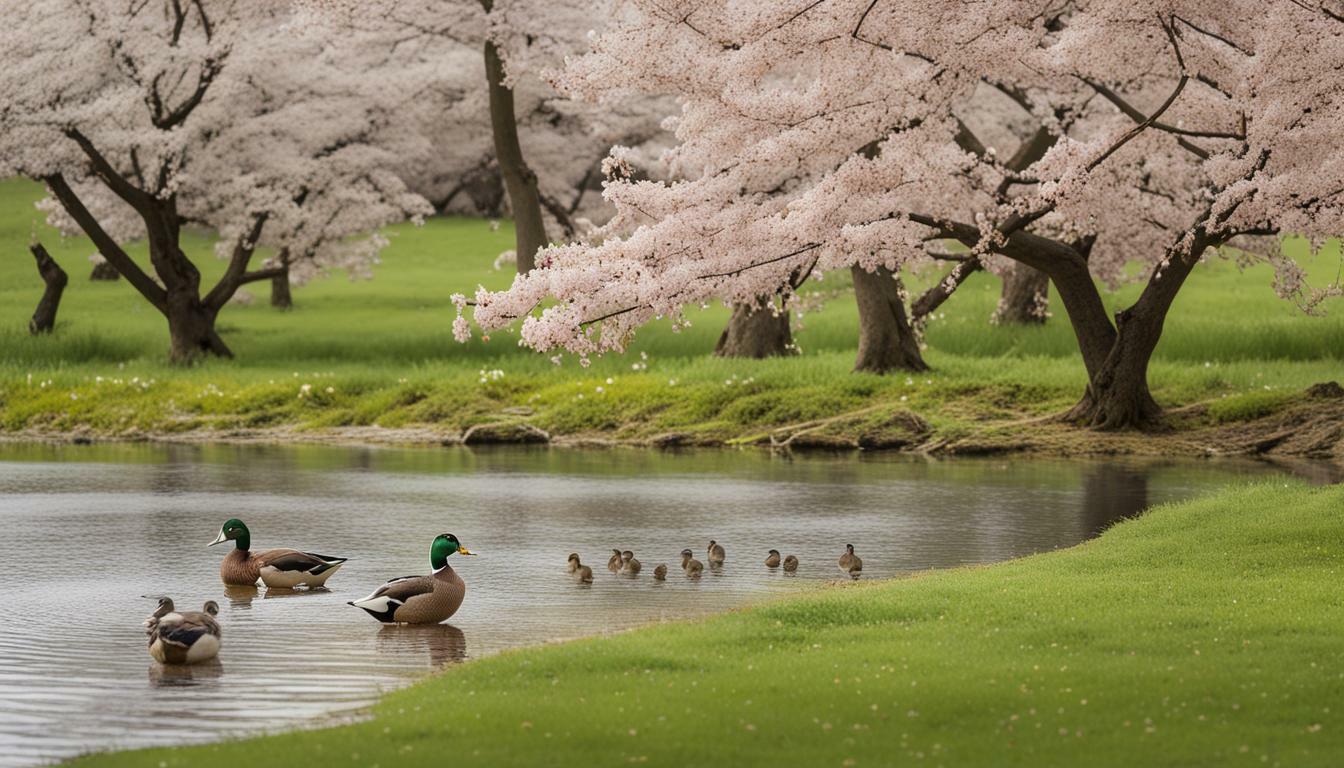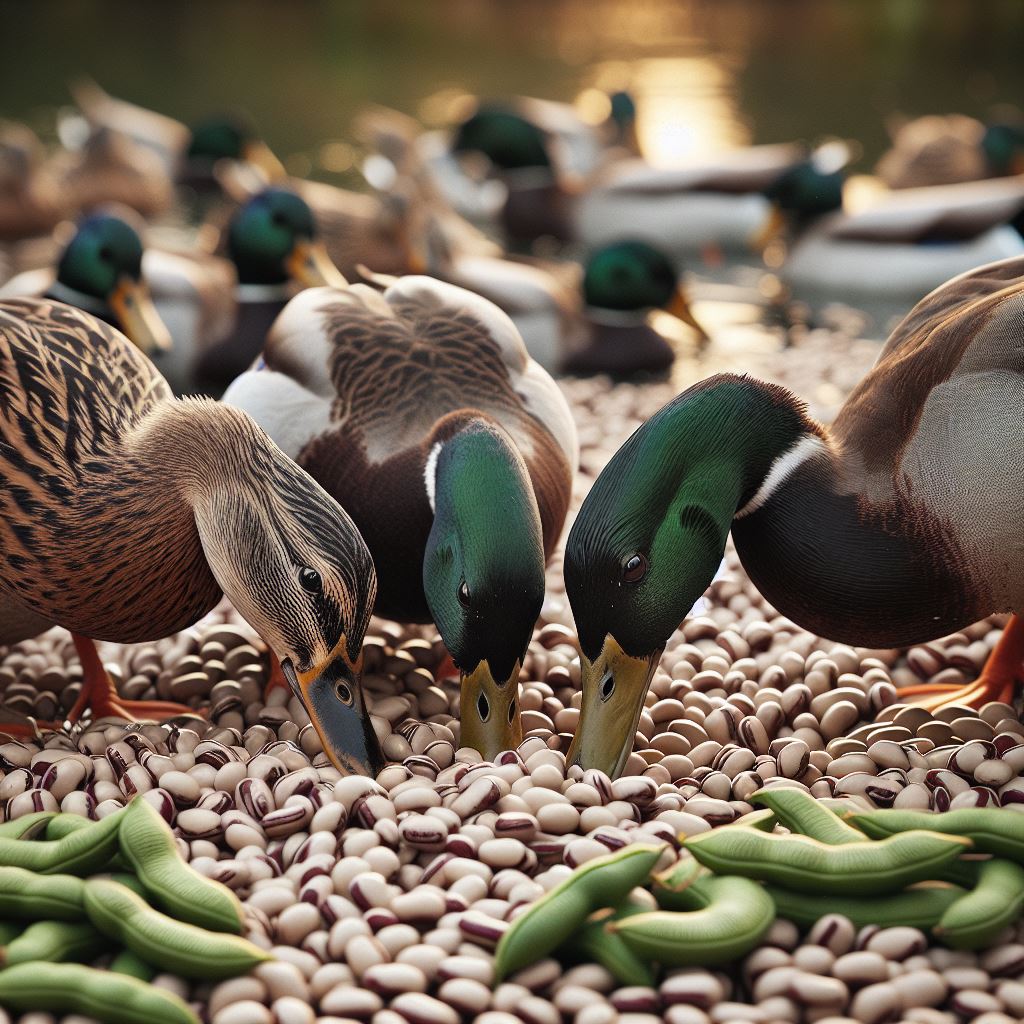Can Ducks Eat Slugs? The Health Risks and Benefits
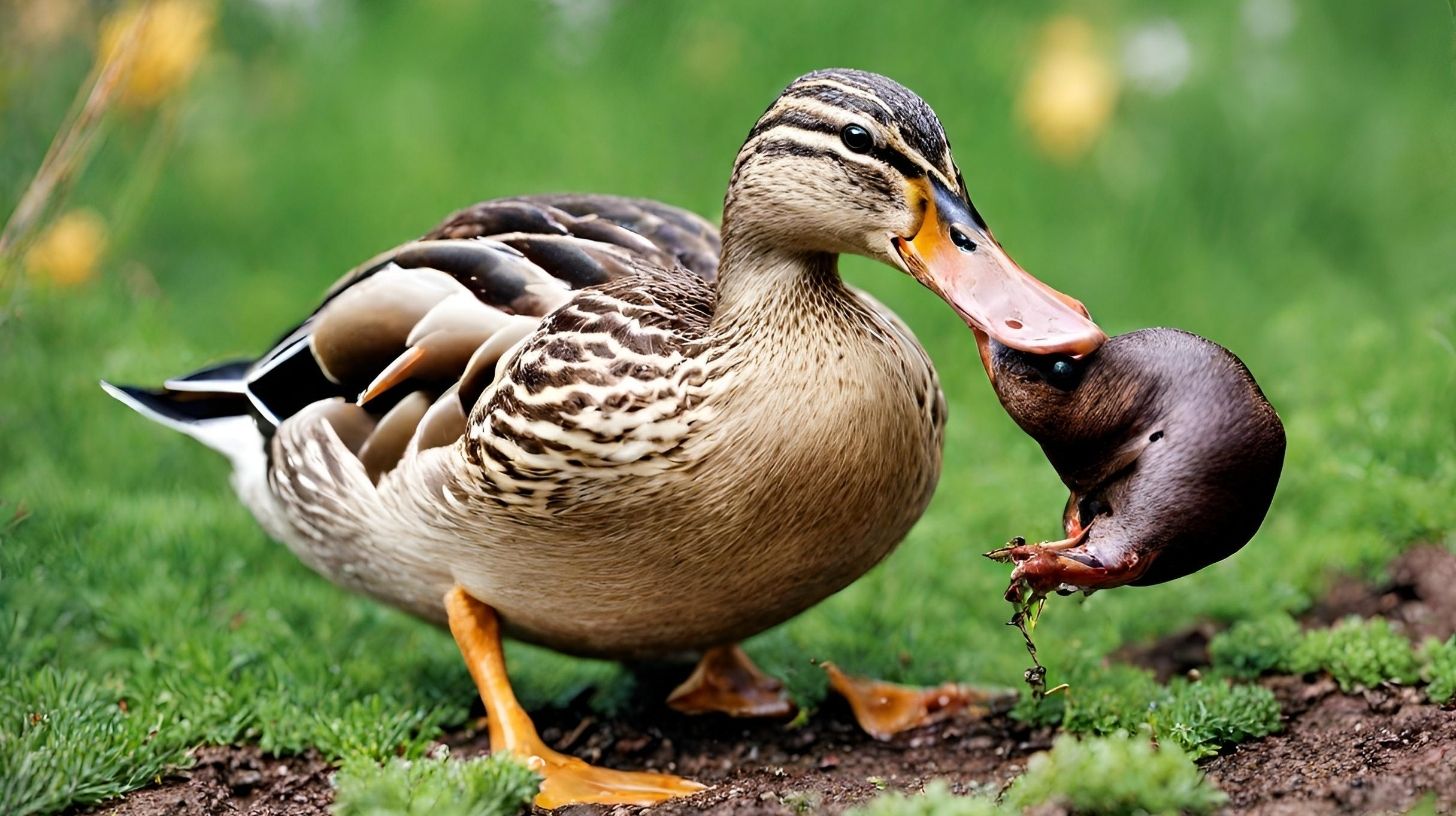
Table of content:
- Do Ducks Naturally Eat Slugs and Snails?
- Are Slugs Good or Bad For Pet and Wild Ducks?
- What Do Ducks Like to Eat? Best Duck Diet
- Are Slugs Poisonous or Harmful to Ducks?
- Can Ducks Get Sick From Eating Slugs?
- Is It Okay to Feed Ducks Slugs? How Much?
- Can Slug Slime Hurt Ducks if Ingested or Touched?
- Best Practices When Feeding Ducks Slugs
- Frequently Asked Questions About Ducks Eating Slugs
- Conclusion
Can ducks eat slugs and snails? Are slugs bad for ducks? Feeding ducks seems fun and harmless, but what do ducks really like to eat? What should you avoid feeding them from your garden? This definitive guide covers everything you need to know about ducks eating slugs, with tips from experts.
Key Takeaways:
- Ducks can eat slugs and snails, but they should not be a primary food source. Slugs provide protein but lack key nutrients ducks need.
- Slugs and snails can potentially transmit parasites and illnesses to ducks. It’s best to limit how many ducks eat.
- The best duck diet includes pellets, fresh greens, seeds and occasional treats like slugs or mealworms. Avoid moldy, rotten or unfamiliar foods.
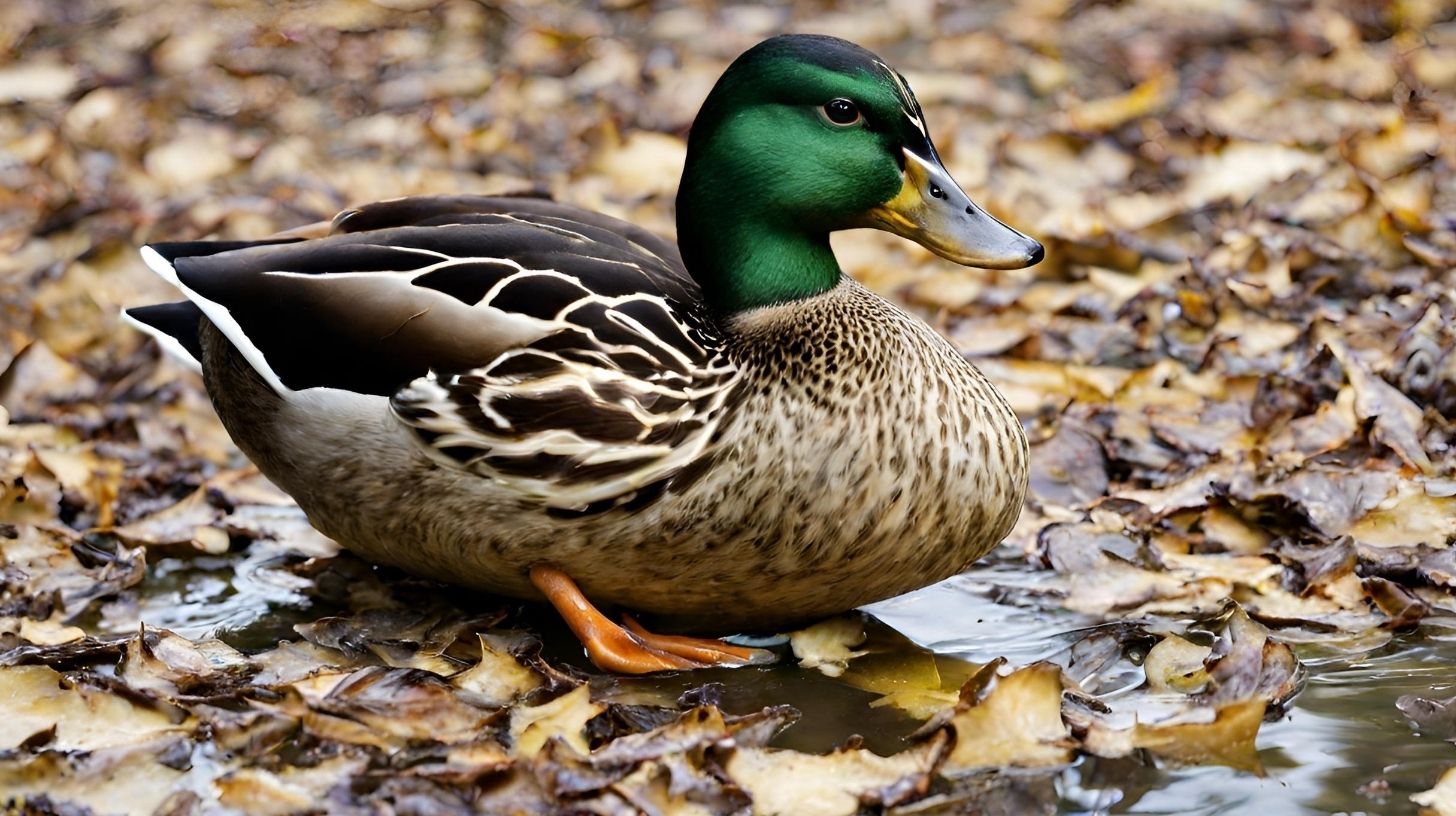 Do Ducks Naturally Eat Slugs and Snails?
Do Ducks Naturally Eat Slugs and Snails?
In the wild, ducks are omnivores and will eat slugs and snails when foraging. However, slugs and snails make up only a small part of a duck’s natural diet.
Mallard ducks dabble in shallow water to find insects, plants, seeds and invertebrates like gastropod mollusks (slugs and snails). They use their wide, flat bills to strain these foods from water.
Dabbling ducks like Mallards are not specialized to eat primarily slugs and snails. These garden pests are more of an occasional treat found while foraging.
Are Slugs Good or Bad For Pet and Wild Ducks?
Slugs and snails provide some nutritional value to ducks:
- Protein – Slugs get protein from plants and fungi. Eating them provides ducks with needed protein.
- Calcium from snail shells contributes to bone health.
However, slugs and snails lack complete nutrition for ducks:
- Low in vitamins like Vitamin A, E and B vitamins ducks require.
- No carbohydrates to provide ducks energy. Plants and seeds are better sources.
- High moisture content means ducks may need to eat more slugs to get nutrition.
There are also potential downsides to ducks eating slugs and snails:
- Parasites – Slugs and snails can carry parasites like flukes, tapeworms and nematodes that cause illness in ducks.
- Bacteria – Slugs’ slime contains bacteria, some potentially harmful to ducks like salmonella, listeria, pseudomonas and clostridia species.
- Fungi and mold – Slugs feed on decaying matter that contains dangerous fungi and molds if ingested by ducks.
For wild ducks, the benefits of slugs likely outweigh the risks. But for backyard or pet ducks, it’s best to limit slug consumption to avoid potential illness.
What Do Ducks Like to Eat? Best Duck Diet
In captivity, the best diet for ducks includes:
- Duck or waterfowl feed pellets provide balanced carbs, protein and nutrients. Feed 1/4 to 1/2 cup per duck daily.
- Fresh greens like kale, spinach, lettuce or weeds provide vitamins, minerals and variety. Chop into duck-sized pieces.
- Seeds like wheat, barley, oats or chopped corn help ducks grind food in their gizzard.
- Mealworms offer needed animal protein to ducks without parasites that slugs may carry.
- Treats like slugs, crickets or grapes are fine in moderation. But pellets and greens should be dietary staples.
Feeding a nutritious base diet prevents ducks needing to forage for slugs and pests in the garden. Ducks with full bellies will be less tempted to overeat risky foods.
Are Slugs Poisonous or Harmful to Ducks?
Slugs and snails can potentially sicken ducks in these ways:
Parasites
Slugs ingest parasites like flukes (trematodes) while feeding on plants, animal feces or carrion:
- Flukes attach to a duck’s intestines, resulting in diarrhea, weakness and failure to thrive.
- Tapeworms compete for nutrients, rob ducks of nourishment.
- Nematodes (roundworms) infect ducks via slug slime/mucus contact, causing illness.
Bacteria
Slug slime helps them glide and contains bacteria. Some species are harmful:
- Salmonella – Causes vomiting, diarrhea, weakness and death in ducks.
- Listeria – Nervous system infection, loss of balance, circling.
- Pseudomonas – Respiratory infections, eye/skin infections.
Fungi and Mold
Slugs feed on decaying vegetation high in mold or fungus spores. Ingesting these can sicken ducks by:
- Aspergillosis – Respiratory illness from inhaling mold spores.
- Candidiasis – Crop infection with yeast/fungus Candida albicans.
Overall, slugs pose a moderate poisoning risk to ducks if consumed in excess. Rotting slugs or those carrying high parasite loads are most dangerous.
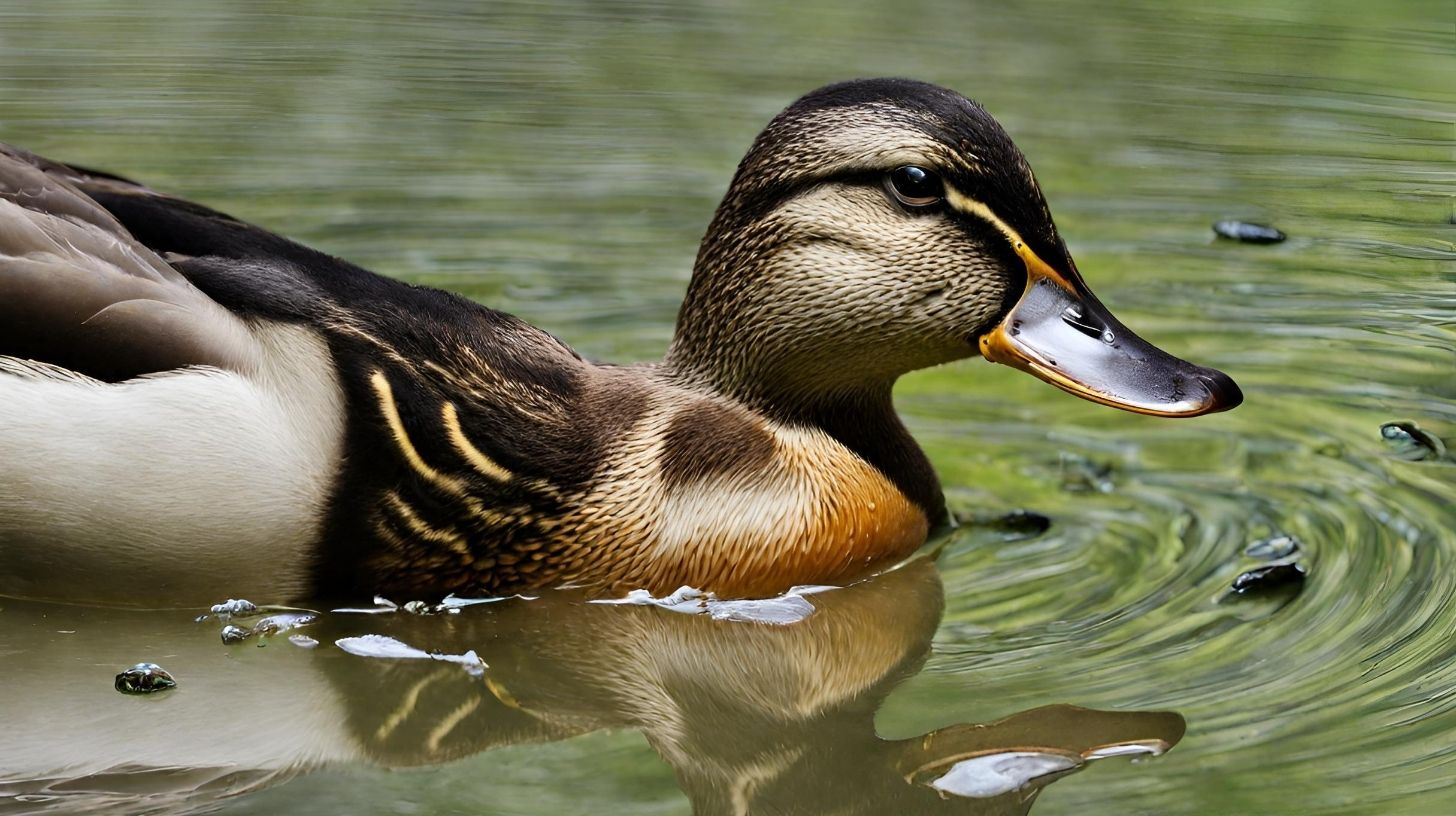 Can Ducks Get Sick From Eating Slugs?
Can Ducks Get Sick From Eating Slugs?
Yes, ducks can become ill after eating slugs, especially:
- Ducklings – Their immune systems are still developing, making them more prone to getting sick. Avoid feeding ducklings slugs.
- Molting ducks – Slug parasites may infect ducks more easily during the stress of molt.
- Wild ducks – Dabbling ducks are adapted to eat some slugs, but backyard ducks may lack immunity.
Monitor your ducks after they’ve been grazing on slugs. Look for these signs of possible illness:
- Listlessness, lethargy
- Poor appetite
- Loose droppings
- Weight loss
- Feather plucking
- Gasping, coughing
- Circing, loss of balance
- Eye/skin infections
If you observe any of these symptoms, remove slugs from the duck habitat. Call your avian vet, as medication or worming treatment may be needed.
Provide abundant healthy greens and pellets to discourage ducks from overindulging in slugs.
Is It Okay to Feed Ducks Slugs? How Much?
Slugs should be an occasional treat for ducks, not a dietary staple. Follow these slug feeding guidelines:
- Limit slug intake – No more than a few 2-3 small slugs 2-3 times per week.
- Avoid slugs from gardens with pesticides, chemicals or pet waste that ducks could ingest.
- Wash slugs – To remove potentially toxic soil residue or slime that could sicken ducks.
- Chop large slugs – For easier swallowing and digestion. Prevent choking.
- Remove slug carcasses – Quickly dispose of any uneaten slugs, which rot and grow mold.
- Feed slugs sparingly when introducing new ducklings. Wait until 12-16 weeks old before offering first slugs to avoid illness.
With a balanced diet, ducks will satisfy their protein cravings with healthier options like pellets and mealworms. Slugs should be a duck delicacy, not a staple. Exercising caution when feeding minimizes risk of parasitic illness in ducks.
Can Slug Slime Hurt Ducks if Ingested or Touched?
Slug slime helps the mollusks move and adhere to surfaces. The slime contains:
- Mucus – Allows smooth gliding. Composed of proteins and carbohydrates.
- Bacteria – Up to 150 bacterial species aid slug digestion and immunity. Some are potentially infectious to ducks.
- Potential toxins – Evidence suggests some slug species produce numbing toxins in their mucus as a defense against predators. Unclear if these affect ducks.
- Allergens – Some researchers propose ducks could potentially have allergic reactions to slug slime. No evidence yet exists.
Overall, slug mucus is likely safe in small amounts ingested through eating slugs. But caution is warranted:
- Avoid slug slime contact with duck eyes, nostrils, mouth. Rinse if contact occurs.
- Monitor ducks after exposure to slime through slug ingestion or environment.
- If any swelling, breathing issues, or allergic reaction appears, call an avian vet immediately.
Washing slugs before feeding reduces potentially harmful slime ducks could ingest. Supervise young ducklings around slugs.
Best Practices When Feeding Ducks Slugs
Here are some best practices for safely allowing ducks to eat slugs:
- Inspect slugs before feeding and discard any diseased/rotten ones.
- Wash slugs thoroughly after collecting and before feeding to ducks.
- Chop large slugs into bite-sized pieces for ducklings or smaller duck breeds.
- Introduce slugs slowly, a few times per week, to monitor for reactions.
- Prevent gorging – withdraw slugs once ducks lose interest or stop eating.
- Offer slugs as treats, not everyday meals. Stick to a healthy core duck diet.
- Avoid slugs potentially exposed to pesticides, chemicals, or waste products.
- Remove uneaten slug parts promptly. Don’t leave decaying slugs in duck areas.
- Increase variet in duck diet. Rotate slugs with mealworms, crickets, greens.
Exercising common sense helps make occasional slug feeding safe. Get to know your ducks’ preferences so slug treats are enjoyed, not refused! A diverse diet and nutritious feeding prevents overreliance on slugs.
Frequently Asked Questions About Ducks Eating Slugs
Can ducks get slug slime poisoning?
There’s no evidence slug slime itself can poison ducks. But bacteria in the slime could potentially cause illness if ingested. Monitor ducks after slug contact for symptoms of infection.
What if a duck eats a poisonous slug?
A few slug species produce toxins that can harm ducks if eaten, like banana slugs. If in doubt, don’t feed wild slugs. Wash all slugs to reduce contamination risk before feeding.
Do duck eggs taste bad if ducks eat slugs?
Egg flavor should not be impacted by occasional slug eating. But slugs may taint eggs if they are a very frequent part of a duck’s diet.
Can ducks get parasites from slugs?
Yes, worms and flukes are common slug parasites. Check duck droppings for signs of worms. Use a poultry dewormer if parasitic illness is observed after slug feeding.
Why do my ducks keep eating so many slugs?
Excess slug eating usually indicates boredom or poor nutrition. Increase time spent interacting with your ducks and offer more greens, pellets, swimming opportunities.
Conclusion
Ducks will enjoy an occasional slug snack plucked from the garden. But slugs should not become a staple duck food source. Following a smart, nutritious primary duck diet supplemented with modest slug feeding minimizes any risks of problematic bacteria or deadly parasites. Exercising caution allows ducks to safely indulge in the occasional slug or snail delicacy. With good duck care practices, owners can feel confident allowing ducks to follow their natural insect-eating behaviors.
Welcome. I’m Adreena Shanum, the proud owner of this website, and I am incredibly passionate about animals, especially poultry. I founded adreenapets.com as a labor of love, stemming from my desire to share my knowledge and experiences with poultry enthusiasts worldwide.


